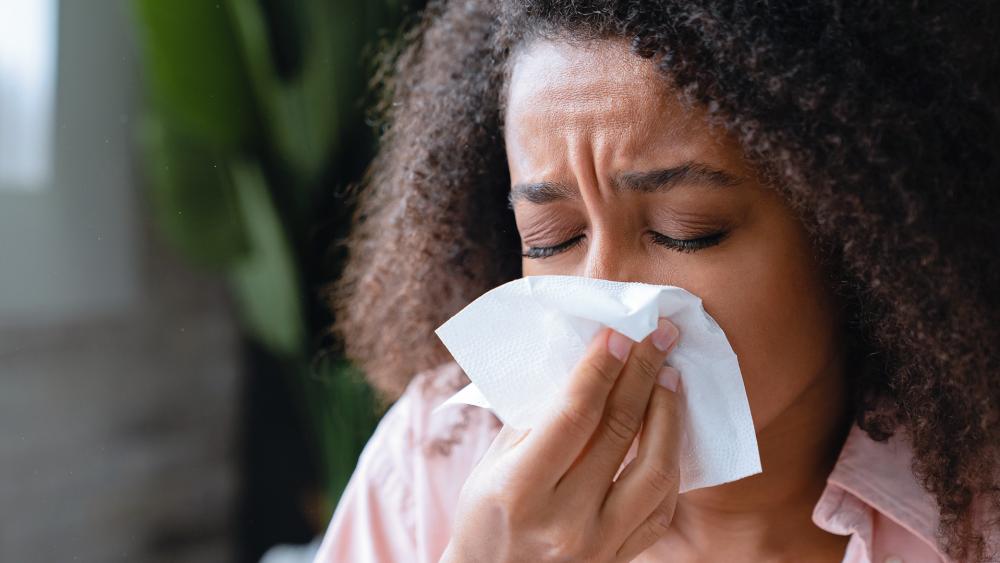This time of year, pollen often becomes public enemy number one. The sneezing, itchy eyes, and scratchy throat are often blamed on pollen from colorful flowers like roses or daffodils, but the truth is, not many people are allergic to flowers. People who suffer from seasonal allergies are usually struggling with pollen from trees, weeds, grass, or often, all three. Depending on the type of tree, weed, or grass pollen from which a person suffers, symptoms can last from spring through the fall.
Our level of discomfort often depends on where we live. According to the Asthma and Allergy Foundation of America, the worst city in America for seasonal allergies is Wichita, Kansas, followed by Virginia Beach, Virginia. Then comes Greenville, South Carolina; Dallas, Texas; and Oklahoma City, Oklahoma to round out the top five most challenging places to live if you suffer from seasonal allergies. The criteria include tree, grass, and weed pollen scores, numbers of people reporting allergy symptoms to medical professionals, as well as sales of over-the-counter allergy medicine use per capita.
The good news is there are many ways to minimize the symptoms of seasonal allergies.
Board-certified allergist Gregory G. Pendell, M.D., told CBN News we need to resist the temptation to open the windows this time of year.
"We all like that fresh spring air to come in, but what's in that air? Pollen. So keep that out," he said. "And use your air conditioning. The air conditioning helps to cool, dry and clean the air, and that's good for people with allergies. Same thing with your car. Windows up, air conditioning on."
Keep an eye on the local weather forecast to learn when the pollen counts are particularly high. Generally, pollen is worst in the morning between five o'clock and ten o'clock, and on windy days. Pollen is usually the lowest when it rains and soon thereafter.
Dr. Pendell says when we do go outside, keep in mind pollen in the air tends to stick to our skin, hair, and clothes. Therefore, when we go back into our homes, to avoid getting pollen all over, it's a good idea to immediately change clothes, putting the pollen-covered clothing into an airtight container until they are washed, then take a shower.
"I always tell my patients to keep an allergy-free zone in their house, and it should be the bedroom because that's where you spend the most time and where you sleep," said Dr. Pendell, adding it's a good idea to wash the sheets in hot water at least once a week.
Sometimes allergists recommend over-the-counter antihistamines for instant allergy symptom relief. Also, OTC corticosteroids can be effective, although they can take days to fully offer relief.
Other more natural ways to treat allergies include using nasal irrigation, such as a neti-pot, which uses distilled salt water to rinse away the pollen and mucus that can become trapped in our sinuses.
"I recommend at least once to twice daily but it's not a drug, it's not medicine, so you can't really overdo it," said Dr. Pendell.
Allergy shots are often the most effective way to treat seasonal allergies.
"The allergy shots work by giving a tiny but increasing amount of allergen, and it increases the immune system's tolerance, so over time we can decrease or eliminate your symptoms altogether," said Dr. Pendell.
People who get allergy shots usually start off by getting them once a week and taper off to once every eight weeks for a year or more, then stop altogether.
***Please sign up for CBN Newsletters and download the CBN News app to ensure you keep receiving the latest news from a Christian perspective.***
Did you know?
God is everywhere—even in the news. That’s why we view every news story through the lens of faith. We are committed to delivering quality independent Christian journalism you can trust. But it takes a lot of hard work, time, and money to do what we do. Help us continue to be a voice for truth in the media by supporting CBN News for as little as $1.












 Support CBN News
Support CBN News







